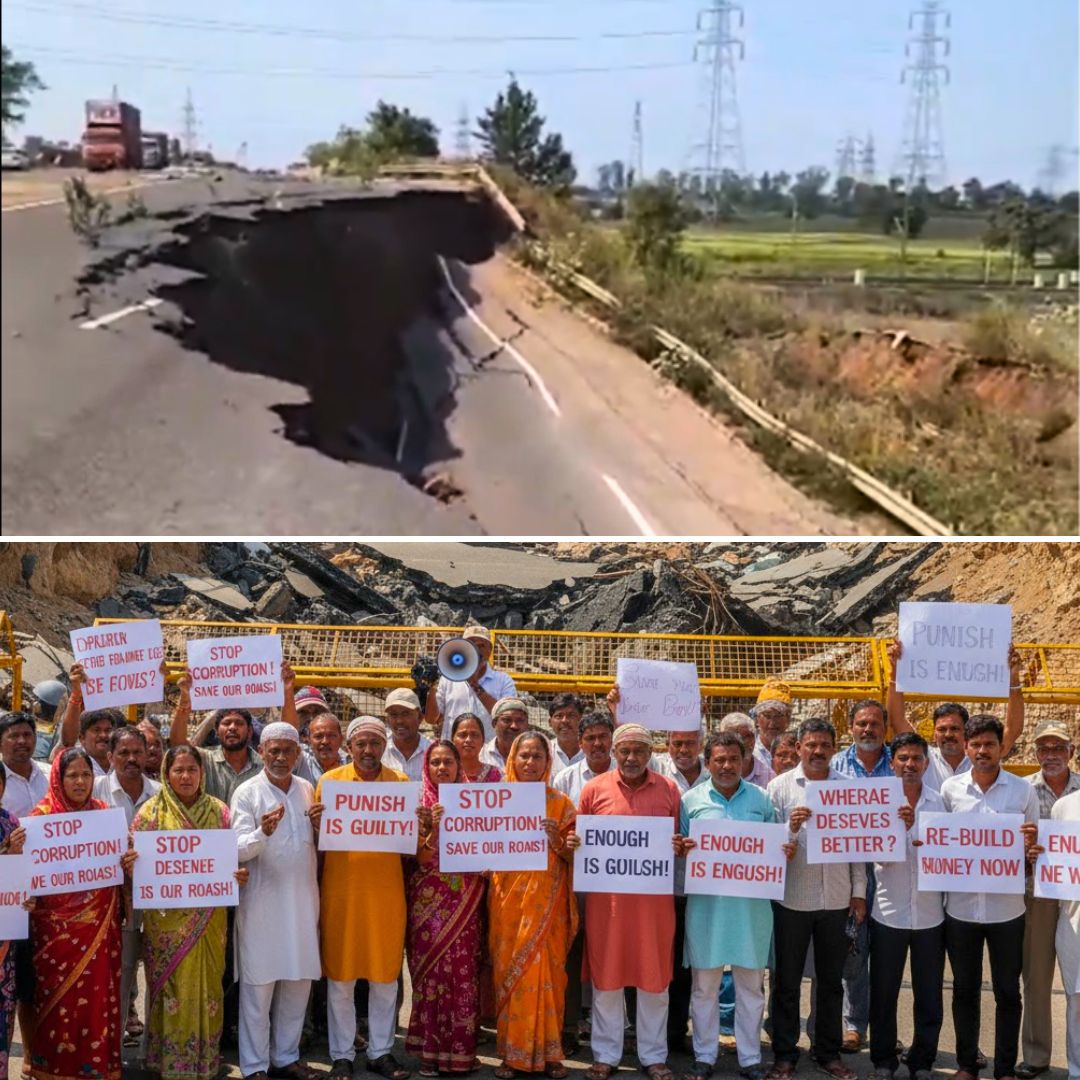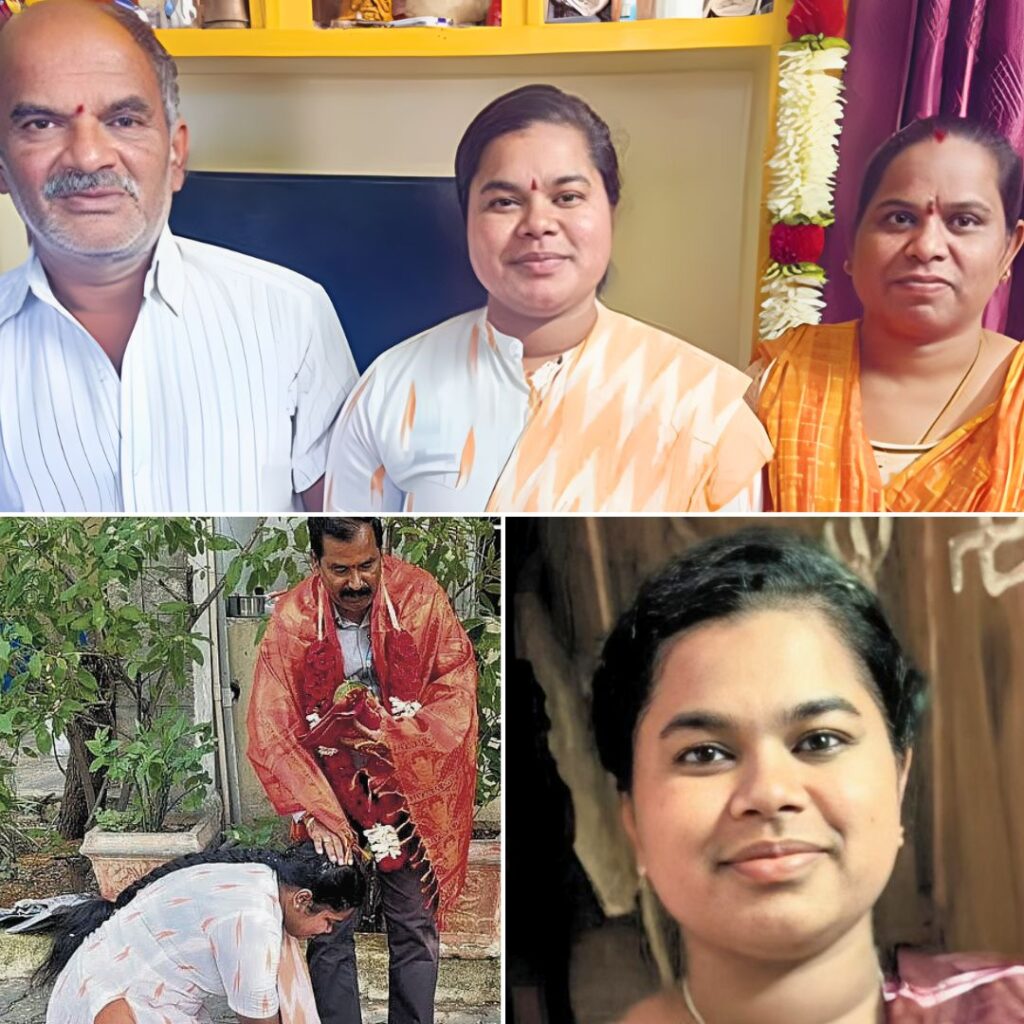On October 13, 2025, a 50-metre section of road caved in on the outskirts of Bhopal, Madhya Pradesh, near Bilkhiria village along the Indore-Jabalpur bypass. The incident occurred in the early afternoon around 12:30 pm, causing significant disruption to traffic as police swiftly cordoned off the area and rerouted vehicles.
Thankfully, no injuries or casualties were reported since the collapse happened at a time when the stretch was clear of vehicles. The collapse created a large crater, estimated to be around 30 feet deep, exposing the weakened underground structures beneath the road.
Authorities, including the Madhya Pradesh Road Development Corporation (MPRDC) and local police, quickly responded to the scene, setting up barriers and initiating road repair and safety measures.
Sukhveer Singh, Principal Secretary of the Public Works Department (PWD), confirmed that a thorough investigation has been launched to identify the exact cause of the failure. Early assessments point toward a failure of the reinforced embankment (RE) wall supporting the road structure, exacerbated by potential soil erosion due to recent monsoon rains.
Official Responses and Public Safety Measures
The District Collector and local administration acted expeditiously to prevent further damage or accidents. Traffic police managed the heavy vehicular flow by redirecting vehicles through alternative routes to minimise inconvenience for commuters. “Our top priority is to ensure public safety and restore the road connectivity as soon as possible,” said Arvind Saxena, District Collector of Bhopal. “We have deployed engineering teams and machinery to begin repair work immediately, and the investigation team will provide clarity on the root causes shortly.”
Local residents expressed relief that no accidents or injuries had occurred but voiced concerns about the increasing frequency of such infrastructure failures. Eyewitnesses described hearing a loud rumbling noise prior to the collapse.
One commuter said, “We saw the road suddenly sink, and the drop was so sudden that vehicles had to stop far away.” The authorities emphasised the importance of public cooperation during the repair phase to avoid any additional hazards.
Infrastructure Vulnerabilities and Recurrent Incidents
This incident adds to a growing list of infrastructure issues in Madhya Pradesh, where road subsidence and cave-ins have been recurring problems over the years. Experts attribute these vulnerabilities to multiple factors, including ageing infrastructure, substandard construction materials, poor drainage systems, and the impact of heavy rains that weaken soil stability under the roads.
The section of road involved was constructed over a decade ago and had reportedly developed cracks and stress signs prior to the collapse. Reports indicate that the monsoon rains leading up to the incident may have further destabilised the embankment supporting the road surface.
Similar cave-ins were reported in previous years in and around Bhopal and other parts of the state, prompting calls from civil society for enhanced maintenance regimes and stricter quality controls on public works projects.
Urban planners and infrastructure specialists stress that failure to address these chronic issues with proactive measures could lead to more frequent and dangerous incidents, especially as urban areas expand and traffic volumes increase. They recommend comprehensive inspections, improved drainage infrastructure, transparent audits, and the allocation of greater resources for maintenance as critical steps for averting such collapses.
The Logical Indian’s Perspective
At The Logical Indian, this incident is a clear signal that our infrastructure demands more than periodic patch-ups-it requires sustained investment, stringent oversight, and community engagement. While no lives were lost this time, the narrow avoidance of tragedy should compel policymakers and public authorities to act decisively.
We champion the values of safety, empathy, and proactive governance. Roads are lifelines that connect communities, promote economic opportunities, and ensure daily convenience. The safety of these lifelines reflects the collective wellbeing of a society. Ignoring infrastructure decay jeopardises this wellbeing and undermines public trust.
Hence, we urge governments at all levels to place infrastructure resilience at the forefront of development priorities. Transparent investigations into such incidents should be shared openly, and learnings must translate into reforms that prevent repeat occurrences. Moreover, citizens have a role in advocating for safer environments by holding authorities accountable and demanding clear action plans.
₹271 crore NH 46 near bhopal sank creating a 20 foot deep crater deeper than moon's crater. Imagine the level of JOKE on taxpayers 🤡 pic.twitter.com/Jm2ARxklWG
— 🚨Indian Gems (@IndianGems_) October 14, 2025











